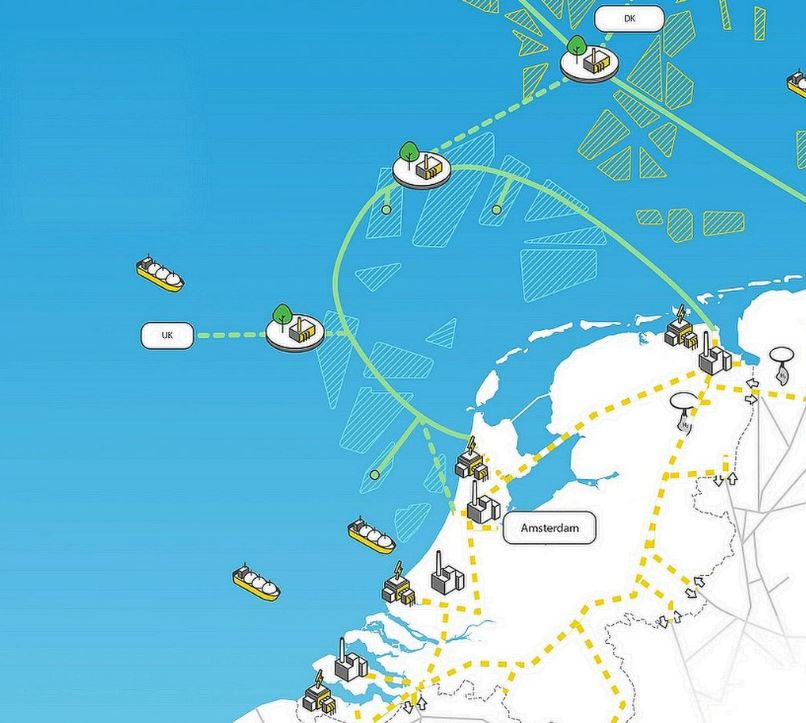Gasunie has been designated as the intended network operator for the future hydrogen network in the North Sea.
This decision, announced by the Dutch Minister for Climate and Energy Policy, Rob Jetten, highlights the strategic importance of hydrogen in achieving the Netherlands’ climate goals and energy independence. While this development is promising, it is crucial to critically assess Gasunie’s role and the broader implications for the hydrogen energy sector.
The Netherlands, like many countries around the North Sea, has ambitious plans to expand offshore wind energy. As wind power generation increases, transmitting this energy to land solely in the form of electricity will become increasingly challenging. Hydrogen offers a viable alternative due to its extensive transmission capacity via gas pipelines and ease of storage. This makes it a crucial component in ensuring a reliable and resilient energy supply, especially during periods when wind and solar power are insufficient.
Jetten’s decision to appoint Gasunie as the operator of the offshore hydrogen network aims to safeguard public interests and reassure the market about the availability of necessary infrastructure. This move is expected to enhance the Netherlands’ competitive position and contribute significantly to the transition towards a sustainable energy system.
Gasunie, with its extensive experience in managing national energy infrastructure, is well-positioned to take on this new challenge. The company has already started constructing a national hydrogen network by repurposing existing natural gas pipelines. Expanding this expertise to the offshore sector involves significant technical and logistical challenges but also presents opportunities for innovation and collaboration.
Gasunie’s role in developing the North Sea hydrogen network aligns with broader trends in the hydrogen energy sector. Europe is investing heavily in hydrogen technologies to reduce carbon emissions and enhance energy security. The North Sea, with its abundant wind resources and existing gas infrastructure, is uniquely positioned to become a hub for green hydrogen production and distribution.
